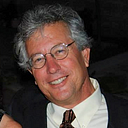What AP Social Studies Teachers Think About ChatGPT
As revealed by my May 14–19 survey
I am a San Marino High School AP social studies teacher who, since the launch of ChatGPT in November 2022, has used the bot extensively for various classroom purposes.
Recently, while preparing for a ChatGPT-related webinar presentation that I’m scheduled to give on May 21, several news headlines caught my attention:
- ‘The Godfather of A.I.’ Leaves Google and Warns of Danger Ahead
- OpenAI’s Sam Altman Urges A.I. Regulation in Senate Hearing
- Elon Musk Warns AI Could Cause ‘Civilization Destruction’
These striking headlines prompted me to ponder the perceived risks and benefits of A.I. tools like ChatGPT in various AP social studies classes.
These headlines also inspired me to create a survey, which I distributed on May 14 to members of various AP social studies teacher Facebook groups and to members of various CB-sponsored AP social studies teacher online communities. I also forwarded a copy of this survey to several distinguished education leaders I know personally.
This survey sought to shed light on a number of different Chat-GPT-related questions, two in particular:
- In light of all this bad press, should ChatGPT be banned on all public school devices and networks?
- Should teachers be required to obtain parental permission before asking students to use ChatGPT in class?
On May 19, I concluded the survey, having gathered an impressive 89 thoughtful responses.
Question #1:
When asked whether ChatGPT should be banned on all high school devices and networks, 53.6% said NO. The prevailing rationale, in the words of one respondent” was that “this technology is a game changer, and so we teachers now have an obligation to teach our students how it works and what can be done with it. If we don’t do this, our students will surely fall behind.”
Question #2
On the question of whether teachers should be required to obtain parental permission before asking students to use ChatGPT in class, 58.3% of respondents said NO. Personally, I find myself diverging from the majority view expressed here. I firmly believe in the importance of parental involvement in a student’s educational journey, especially when it involves new technology like ChatGPT.
Question #3
Another question my survey asked was, “How beneficial is ChatGPT in enhancing your classroom learning outcomes.” I read the results as a mixed bag, though I personally believe that proper use of ChatGPT and other related AI tools can and will help bend significantly the stubborn student success curve.
Question #4
My survey also asked, “Have you yet used ChatGPT for a class-related purpose?“ Nearly 60% said NO.
My survey also revealed that the “no-saying” teachers were the teachers who were far more likely to call for the banning of ChatGPT and to speak out critically against the use of the bot in teaching, learning, and assessment.
This finding somewhat mirrors a February 2023 Walton Family Foundation survey finding, with this survey of 1,000 teachers (grades K–12) having revealed that “teachers who have not used ChatGPT were more likely to say it has had no impact (44%) than a negative one (10%).”
This survey also revealed that:
- Within two months of its introduction, a 51% majority of teachers reported using ChatGPT, with 40% using it at least once a week and 53% expecting to use it more this year.
- Most teachers (71%) . . . agree that “ChatGPT will be an essential tool for students’ success in college and the workplace.”
Regardless, I wonder what would happen if you were now to conduct a similar survey. What might you find? Would your results mirror my survey findings, or would they present a contrasting picture?
In other words, no matter what you think about my survey, I now encourage you and your students (and especially the Stats teachers and their students) to pick up the baton, conduct your own survey, and share your findings.
Or, at the very least, email me at ppaccone@smusd with any comments, questions, or concerns you have.
It is only through this collective discourse that we can shape a future that effectively integrates education and technology, ensuring the best learning outcomes for our students.
